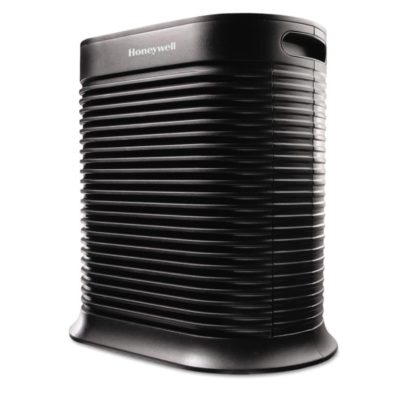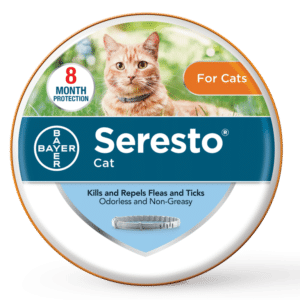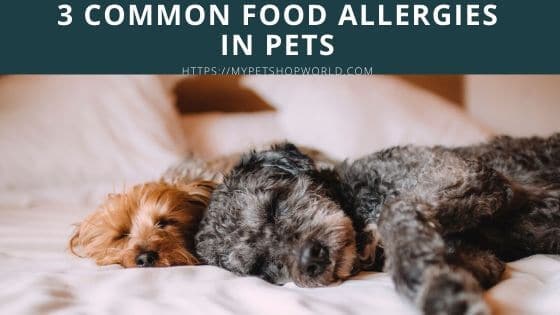How to spot Allergies in Pets? Sometimes a simple solution cures the allergies in pets.
Spring is here and my cats and dogs do suffer from hayfever. It is not a joke it is real. Dogs and Cats can be allergic to pollens. What are the most 3 common Allergies for your pets?
Yes, our pets are constantly exposed to foreign organisms and foreign substances.

Those substances can cause severe allergic reactions to cats and dogs.
It is necessary to be aware in favour of our pet, to prevent and avoid the complications that can arise.
The symptoms are a bit different as to us humans, but they are the same unpleasant for our pets then they are for us humans.
Common Allergies in Pets will increase in the coming years. Our Environment is not getting better it is getting worse.
The only thing we can do is helping our pets to get over it as easy and less irritation as possible.
Pet allergies symptoms. How can you spot it?
Cats and Dogs who have allergies feel itchy. It is because the histamine is released whenever their immune system attacks the offending allergens.
The most often affected areas of the body and skin. The most affected body parts from cats and dogs are
- Ears,
- Eyes,
- Feet,
- Tail,
- Between the toes,
- Groin,
- and around the anus.
- The constant itching causes
- head shaking,
- feet biting,
- face rubbing,
- and bottom scooting.
Pet Allergies are annoying for your loved four-legged friend.
Sometimes pets also bite their tails or scratch their bellies.
Cats, for example, bite and clean themselves so long until they have no more hair left only the skin.
This is called bold spots ( alopecia) and it affects 60% of the cats.
The main cause is from cat food. A lot of Pet food has ingredients that are not recognizable or never heart off.
Download our free ebook” For the love of Pets. Click here

What are common Pet Allergies? How to treat them without killing your pet.
Allergy is a reaction to a substance that irritates the immune system. Pets will show allergic symptoms as soon as their Immune system recognises a certain everyday substance or allergens as an Invader or as dangerous.
There are many allergens in our environment, and a lot of them are very common and harmless to most animals, but as it is the same as in us human there will be a certain percentage of pets who react allergically to certain substances in the Environment and Food.
If you discover that your pet has an allergic condition, get an appointment with your veterinarian as soon as you can. Not every Veterinarian will prescribe anti-allergy drugs.
Nowadays there are safer ways to relieve your pet’s discomfort and symptoms from the allergic reaction.
It is essential that your Vet is looking into the root cause of the allergic reaction.
The Problem with the pharmaceutical drug is a short-term fix what can then become a long-term health problem for your pet.
On top of it, most drugs have a significant side effect on the health of your pet.
The most 3 Common Allergies for your Pet. Pet owners do not categorize them as an allergy.
Allergies in pets, are common and affects both of the domestic species. Allergies can be caused by external parasites like
- Fleas,
- Ticks,
- Lice,
- Scabies,
- Mites,
- etc.
1. Flea Allergy Dermatitis (FAD)
One of the more common ones is Flea Dermatitis. The Fleas will bite the animal and inject a tiny amount of saliva sufficient enough to sensitise the animal to itching and that causes your pet to feel uncomfortable for many weeks, even when the flea is already dead.
Did you know?

One single tiny flea can cause and trigger the whole process to an allergic reaction.
There are different products to control those insects and parasites. You can get flea collars or you use aerosol sprays.
You can also use essential oils like lemongrass to clean the area where your pet is resting or sleeping.
Please note that essential oils are to be taken with care and should never be used undiluted for the use in pets.
( please check out our other post The best essentials oils for pets)
Here are a few Suggestions for Flea control.
*If you suspect that your pet has a flea problem, I would recommend that you brush with a comb your pet at least once a day best with a flea comb. Keep this up every day during flea season.
*Use a flea collar or flea powder to get rid of the fleas.
*Use a white Towel or other light-coloured cloth, to see what is coming off your pet during combing.
The Flea ‘dirt’ (actually called flea faeces) looks like real dirt, only when suspended in a little rubbing alcohol or water it will dissolve and release a red colour. ( I have tried it and it works.)
This red colour is the blood from the flea and allows you to differentiate between real dirt and flea dirt
Please click the picture below to go to Flea products.
A nice soothing relaxing bath will help your Pet with the itching and at the same time kill any fleas on your Pet.
It helps to heal the skin irritation, it makes your pet feel comfortable.
Please be aware that you can not use the shampoo from yourself on your Pet.
In the pet stores are special products to use for bathing and shampoo your pet.
Clean Pets are less attractive to fleas.
Please pick a non-grain ( no oatmeal) herbal shampoo.
*There are pretty good all-natural pest repellent on the market like natural flea and tick collars.
Please do yourself and your pet favour to get them during flea season.
The start of the season is normally when the first days in spring are warm.
Especially in the Summer season, Natural flea and tick repellents are a good treat to keep you and your pet safe from ticks and fleas.
*For Pets with serious cases of flea allergy dermatitis consult your vet and ask for a less hazardous drug with less side effect for the health of your pet.
2.Food allergies in Pets and how can you spot them.
If your pet has an allergy to what it is eating then it may show itself with different symptoms, such as an upset stomach, or digestive disorder,( gas, vomiting, diarrhoea, etc. )
- -Itchy or inflamed skin
- -Coughing or sneezing, signs of asthma
- -Inflamed or itchy ears
- -Red watery, irritated eyes
- -Swollen paws and joints
- -Nasal discharge
- -Diarrhoea
Most of the time your pet has been eating the same food for a period of time and never showed signs, there is a good chance that your pet developed this allergy to the food over time.
On the contrary, what you been probably informed and believed is pets need diversity in their diet just like humans. Pets are sensitive to the meat that is loaded with antibiotics and hormones, chemically laced protein.
With this said Pets tend to tolerate it over a period of time, and eventually, when the body can not detox anymore the signs come out with different allergies.
Even grains and other carbohydrates added to foods or snacks can cause a reaction. The best thing you can do for your pet is to work with your holistic Vet to develop and tailor an allergy-free diet.
This helps to pinpoint the source and cause of the problem. Normally after 3 months your pet has cleared the allergic substances, detoxifies and cleansed out cellular debris.
After 3 months, new foods are slowly reintroduced into your Pets diet.
Detoxify the Body of your Pet.
Always one at a time to see and monitor the response of your pet. Once the body is detoxified and the pet is again healthy it is not uncommon for pets to re-incorporate previous food problems or clean proteins.
*A good holistic vet will suggest and recommend natural supplements for your pet to detox its body from time to time.
This will help to keep the allergy and the immune system in place during and after the treatment.
*For your Pet to be optimally healthy which includes avoiding food sensitivities and resistance building to all types of allergies.
Feed your pet a balanced, appropriate diet. The best recommendation is preferably raw, either homemade ( as long as it is balanced) or commercial.
Rotating the protein sources your Pet eats is extremely important, as it is strictly limiting or eliminating grains.
Download the Free E-book for the love of Pets. Click here.

Environmental Allergies Indoor and Outdoor that affect your pets.
We already covered FAD allergies and Food Allergies. But in addition to those two, there is also the environmental Allergies. Your pet can also be allergic to an infinite variety of irritants in the environment.
*For example,
- Ragweed,
- Grasses
- Pollens.
Also, indoor irritants can cause allergies like
- Mould,
- Dust mites, Cleaning chemicals,
- Fabric-like wool and cotton.
There is a general rule that applies to a Pet when being allergic to something inside your home, the symptoms will be the whole year-round.
If acting to something outside that could be a seasonal allergy problem what occurs every season.
The Immune system of a pet is partly generic, so it can actually inherit environmental allergies.
I do not need to tell you that it is very important to find the root cause of this type of allergies.
As the rule is the more the pet is exposed to the irritant, the more will his sensitivity and allergic reaction grow.
Here are some suggestions to find the problem and hopefully resolve the environmental irritant.
• Your Pets indoor environment should be cleaned up daily. Don’t allow smoking around your pet. Use non–toxic cleaning products.
 If you can get an Air purifier to control the Dust and mites.
If you can get an Air purifier to control the Dust and mites.
***Important gesture towards your pet, the drinking water of your pet should be high quality and should not contain fluoride, heavy metals or other contaminants.
***Don’t over-vaccinate or medicate your pet.
It will not help its immune system.
Did you know too many vaccines can send your pet into overdrive? An overactive Immune system will set the ground for an allergic reaction.
***Be careful with Antibiotics. They wipe out any good bacteria right along with the bad bacteria.
You will kill the probiotics of your pets GI track. We all know how important good gut – bacteria is for the overall well-being of pets.
***Avoid Steroid therapy. It is common to use for pets with allergies to put them on a Steroid therapy.
These drugs turn off the immune system so that the immune system is not creating an allergic response. It only helps to relieve the symptoms but not the root cause.
When you stop the therapy the problem comes back. The side effects those drugs have is big damage to a pet’s health.
There is no rule on how many times you can bathe your pet. ( please don’t overdo it and don’t soak or drown your pet.) Be a responsible cat or dog owner.
If it helps to relieve the itchiness and inflammation than give this treat to your pet.
Download the Free E-book for the love of Pets. Click here. 
“Please do not use your (human) shampoo”. Use strictly Pet shampoo. ( Don’t buy chemical bombs)
If you can see your dog is irritated and itchy after a walk check for ticks. ( get a flea and tick collar)
If the feet are itchy between the paws than wash the feet with water as the chances are, that the allergen is coming inside your pet’s paws.
I hope you like this article. Please share with your friends and family and give us your tips and tricks on how to overcome and spot allergies in pets. Please be so kind and comment below in our comment section.
Melanie
Read our other blogs
[pluginops_form template_id=’9699′
MyPetshopworld Disclaimer:
This website is not intended to replace professional consultation, diagnosis, or treatment by a licensed veterinarian. If you require any veterinary-related advice, contact your veterinarian promptly. Information at mypetshopworld.com is exclusive of a general reference nature. Do not disregard veterinary advice or delay treatment as a result of accessing information at this site.


Funny enough, most of these food allergies are caused by proteins. According to a research which I read sometimes, considering all dog food allergies two-thirds where caused by beef, dairy and wheat and sometimes chicken, egg and soy.
Cats on the other hand are commonly allergic to dairy, lamb, wheat, chicken and corn.
its very unusual for pets to be allergic to carbohydrate or fats according to the research
But since all pets are different, they suggested the use of food elimination trial as the best method of diagnosing food allergies with a particular kind of pet. Also there are foods formulated specifically for pets with allergies maybe we can check them out too
Hello Cheryl
Food Allergies are not fun for a dog. You are right most of them are caused by proteins. Especially in older dogs when they have arthritis it can make it even worse. I always think it is the processed proteins what have artificially produced that cause the problem. As in nature dogs are carnivores and need the meet. Dogs do not eat a lot of plants only when they need them in their diet. A well-balanced diet for a dog is the best treatment. I have written another blog about the Dog Food Secrets of dog foods and what is in them as well as homecooked dogfood. It is a great book the dog food secrets and it helped my dog to live longer with his kidney disease. Here is the link to that blog Homemade dog food recipes
Thanks for commenting, Have a beautiful day
Cheers Melanie